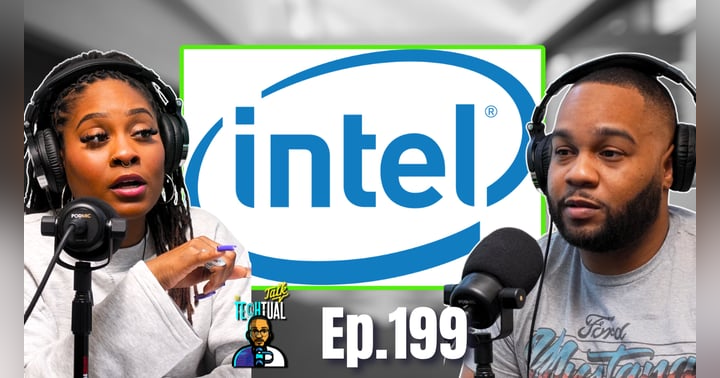Dispelling Myths About Breaking Into Tech
<h1>Dispelling Myths About Breaking Into Tech</h1>
Many people harbor misconceptions about what it truly takes to enter and thrive in the tech industry. This blog post aims to debunk common myths, providing a realistic perspective on the hard work, strategic planning, and continuous learning required for success. We'll draw insights from the experiences shared in our recent podcast episode, featuring Symone Beez, who offers a firsthand account of navigating the tech landscape. Be sure to check out Ep. 186 The Honest Truth about Security+, Govtech, & working helpdesk Ft. Symone Beez for the full conversation.
<h2>Myth 1: You Need a Computer Science Degree</h2>
One of the most pervasive myths is that a computer science (CS) degree is an absolute necessity for a tech career. While a CS degree can provide a strong foundation, it's not the only path. The tech industry is vast and diverse, encompassing roles that value practical skills and experience as much as, if not more than, formal education. Many successful tech professionals come from non-traditional backgrounds, having acquired their skills through bootcamps, online courses, self-study, and hands-on projects.
<h3>Symone's Journey: An Alternate Path into Tech</h3>
Symone's journey exemplifies this alternative path. She didn't start with a CS degree but rather carved her own way into the industry through certifications, continuous learning, and strategic networking. Her story underscores that passion, dedication, and a willingness to learn are often more critical than a specific degree. She emphasizes that while formal education has its place, it's the ability to adapt, problem-solve, and stay current with technological advancements that truly sets individuals apart in the tech world. Symone's path involved taking initiative in learning relevant technologies and networking with the right people, skills that are invaluable irrespective of educational background.
<h2>Myth 2: Tech is a Get-Rich-Quick Scheme</h2>
Another common misconception is that tech is a fast track to wealth and instant success. While the tech industry can be financially rewarding, it requires significant effort, time, and dedication. The idea of overnight success is largely a myth perpetuated by sensationalized stories. In reality, building a successful tech career involves hard work, continuous learning, and strategic career planning. Many people believe entering the tech industry will immediately lead to high salaries, but often that is not the case. Entry-level positions might not offer the glamorous compensation many expect, and progressing to higher-paying roles necessitates mastering skills, gaining experience, and proving your value.
<h3>The Value of Hard Work and Realistic Expectations</h3>
Symone stresses the importance of having realistic expectations. She points out that success in tech, like in any field, comes from consistent effort and a commitment to continuous improvement. Early career phases might involve long hours, tackling challenging projects, and constant learning to stay relevant. Patience is also key. Building expertise and advancing within the industry takes time. Understanding this reality is crucial to avoid discouragement and maintain the motivation needed for long-term success. Success in tech often requires sacrifice and resilience, especially when navigating early career challenges.
<h2>Myth 3: Tech is Only for Geniuses</h2>
A significant deterrent for many aspiring tech professionals is the belief that tech is exclusively for geniuses or those with exceptional innate abilities. This myth can be incredibly discouraging, leading many to believe they lack the aptitude to succeed. In reality, while intelligence and problem-solving skills are valuable, they are not the sole determinants of success. The tech industry values hard work, perseverance, and a growth mindset more than innate genius.
<h3>The Importance of Continuous Learning and Skill Development</h3>
The ability to learn continuously and adapt to new technologies is paramount. The tech landscape is constantly evolving, and professionals must be willing to update their skills regularly. This involves staying informed about industry trends, taking courses, participating in workshops, and engaging in self-directed learning. Symone emphasizes that a willingness to learn and a dedication to skill development are far more important than being a "natural" at tech. She encourages aspiring professionals to focus on building a strong foundation of knowledge and skills, which will enable them to tackle complex problems and adapt to new challenges effectively.
<h2>Myth 4: Networking is Unnecessary</h2>
Many aspiring tech professionals underestimate the importance of networking. Some believe that skills alone are sufficient for career advancement, but neglecting networking can severely limit opportunities. Networking is not just about making connections; it's about building relationships, gaining insights, and opening doors to new possibilities.
<h3>Leveraging Community and Networking</h3>
Symone highlights the pivotal role networking played in her career. She emphasizes that engaging with the tech community, attending industry events, and connecting with other professionals can provide invaluable support, mentorship, and opportunities. Networking allows you to learn from others' experiences, gain insights into different career paths, and discover unadvertised job openings. Building a strong network can also provide a support system to navigate challenges and stay motivated. In the episode, Symone shares specific examples of how networking led to significant career advancements, proving that who you know can often be as important as what you know.
<h2>Strategic Planning and Career Development</h2>
Strategic career planning is vital in the tech industry. Aspiring tech professionals should set clear goals, identify the skills needed to achieve those goals, and create a roadmap for their career development. This involves researching different roles, understanding industry trends, and identifying opportunities for growth. A well-defined career plan provides direction and helps you make informed decisions about your education, training, and job choices.
<h2>Job Market Realities and Application Strategies</h2>
Navigating the job market effectively is a critical skill for any tech professional. Understanding the realities of the job market, including demand for specific skills and the competitive landscape, can significantly improve your chances of landing a job. Tailoring your resume and cover letter to match the specific requirements of each job, preparing for interviews, and practicing technical assessments are essential strategies.
<h2>The Role of Soft Skills in Tech</h2>
While technical skills are undoubtedly important, soft skills are equally crucial for success in the tech industry. Communication, teamwork, problem-solving, and adaptability are highly valued by employers. The ability to effectively communicate technical concepts to non-technical audiences, collaborate with team members, and adapt to changing priorities are essential for career advancement. Soft skills often differentiate candidates and can be the deciding factor in hiring decisions.
<h2>Degrees, Certifications, and School Choices</h2>
The role of formal education, certifications, and school choices is often debated in the tech industry. While a computer science degree can provide a strong foundation, it is not always necessary. Certifications can validate your skills and demonstrate your expertise in specific areas. Choosing the right school or training program depends on your individual goals and learning style. Evaluating the curriculum, faculty, and career services offered by different institutions can help you make an informed decision.
In conclusion, breaking into tech requires dispelling common myths and embracing a realistic understanding of the industry. It's not just about innate talent or quick riches; it's about hard work, continuous learning, strategic planning, and effective networking. Symone Beez's journey, as shared in Ep. 186 The Honest Truth about Security+, Govtech, & working helpdesk Ft. Symone Beez, serves as an inspiring example of how dedication and strategic action can pave the way to a successful tech career. By focusing on skill development, building a strong network, and staying adaptable, anyone can carve their own path in the dynamic world of technology.










